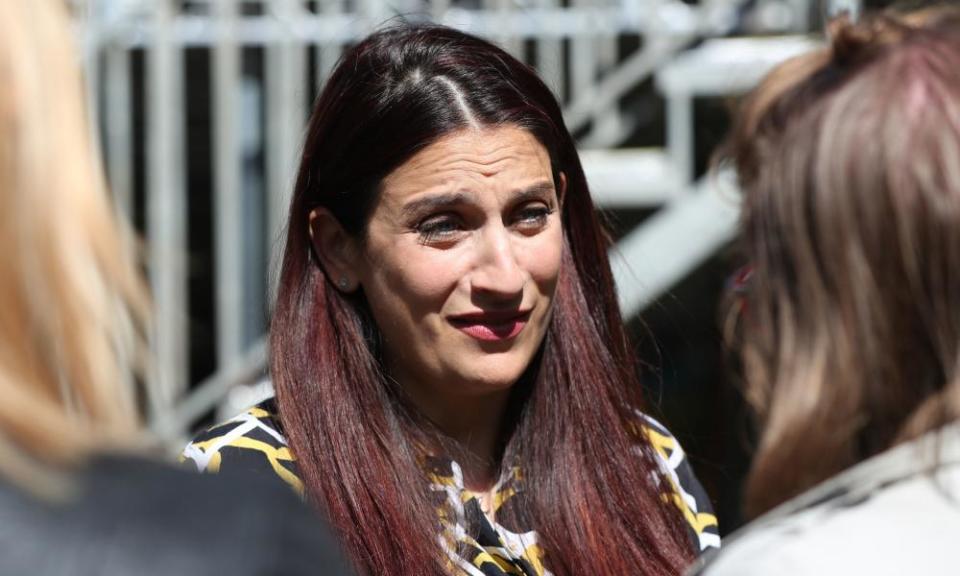Labour and antisemitism: how the party became embroiled in crisis

When did recent accusations of antisemitism within Labour begin?
Concerns about the party’s ability to deal with instances of antisemitism were raised soon after Jeremy Corbyn’s election in 2015.
Under his leadership of the party, there was a huge growth in the number of new members, many of whom were critics of Israel especially regarding its policies towards the Palestinians and its building of settlements in the occupied territories.
There were claims that antisemitic tropes were being widely propagated on social media by leftwing party members. Corbyn and his supporters denied failing to tackle antisemitism, stating that he had fought against racism all his life.
The first major row emerged in 2016 when the Labour MP for Bradford West, Naz Shah, apologised for an antisemitic Facebook post. In an effort to defend Shah, the former London mayor, Ken Livingstone, claimed during several interviews that Adolf Hitler supported Zionism.
After one interview, Livingstone, a close ally of Corbyn, was confronted in front of television cameras by the Labour MP John Mann and accused of being “a Nazi apologist”. Livingstone eventually quit the party after a lengthy disciplinary process.
How did Corbyn seek to investigate claims of antisemitism?
Shami Chakrabarti, the former director of Liberty, was asked to investigate claims of widespread antisemitism within the party. She exonerated Labour but uncovered an “occasionally toxic atmosphere”.
Corbyn’s critics claimed the report was a whitewash and questioned why she was given a peerage by Labour months after it was published.
Why didn’t the Chakrabarti report succeed in drawing a line under the antisemitism claims?
In 2017 and 2018, it became evident the party was receiving more complaints, with a backlog of hundreds of potential disciplinary cases.
Labour MPs joined Jewish groups, including the Jewish Leadership Council and the Board of Deputies of British Jews, and other anti-racism campaigners to demand action in an unprecedented “Enough is Enough” rally outside parliament.
Corbyn apologised in April 2018 for hurt caused to the Jewish community by problems in the disciplinary process, and pointed to only 0.1% of members being under investigation for alleged antisemitic comments.
The party also became mired in a row about whether to adopt the International Holocaust Remembrance Alliance definition of antisemitism, which it ended up ultimately approving.
When did the complaints about antisemitism turn into a crisis?
Last year, there were a number of high-profile resignations of MPs and peers over antisemitism – including the Jewish MP Luciana Berger – which dominated the news agenda once again.
More Corbyn allies were accused of antisemitism. Chris Williamson, a then Labour MP, caused an outcry after saying the party had been “too apologetic” about antisemitism complaints.
In May 2019, a member of Labour’s ruling national executive committee, Peter Willsman, was suspended after being recorded saying that the Israeli embassy was “almost certainly” behind the antisemitism row.
That same month, the Equality and Human Rights Commission placed the party under formal investigation over whether it had unlawfully discriminated against, harassed or victimised people because they are Jewish. The findings of that investigation are expected imminently.
What did the 2019 BBC Panorama investigation allege?
Eight whistleblowers spoke to the BBC for a programme broadcast in July 2019, with some saying they felt there was political meddling from Corbyn’s office in the process for handling antisemitism complaints.
Seumas Milne, one of Corbyn’s closest aides and a former Guardian journalist, was accused of telling officials the party was “muddling up political disputes with racism” and must review processes.
Jennie Formby, the party’s general secretary, was accused of attempting to interfere in who sat on a panel examining the case of Jackie Walker, a high-profile activist who was eventually expelled from the party. Labour strongly denied the allegations of political interference, saying the whistleblowers were disaffected former employees trying to undermine Corbyn. They started an action to sue the party for libel.

 Yahoo News
Yahoo News 